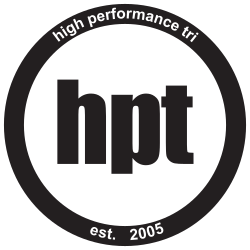Nutrition 101
Nutrition can almost be described as the fourth discipline of triathlon. Training competitively for 3 sports can be demanding on your nutritional needs. This document is designed to give a brief snapshot of what you will encounter on your journey. It is not a detailed analysis. That is best left to the experts. My role is to give you general guidance to follow for training and racing for triathlon.
Contents :
Daily nutrition
Sessional nutrition
Race nutrition
Challenges
Daily Nutritional Volume :
Macronutrients are : Carbohydrate, Protein and Fat
Nutritional “volume” is guided by grams of each macro-nutrient per kg of bodyweight per day. (Referred to as g/kg/day)
Carbohydrate intake will vary according to the amount of training volume you undertake. It will also vary according to if you wish you alter your body composition.
Protein intake will be fixed at 2g/kg/day
Fat intake will be fixed at 1g/kg/day
Carb intake to maintain your current weight :
~ 7 hours per week training = 3g/kg/day
~ 12 hours per week training - 5g/kg/day
~ 15 hours per week training - 7g/kg/day
*It is critical that this carb number is used as a start point and you work on getting to a point of what is right for you to sustain the training load, maintain your desired body composition and stay healthy!
⚠️ If you are training 15 hours per week or more I would advise getting specific qualified sports nutrition advice as you are pushing the limits so to speak and will need a lot more specifics especially around periodising your nutrition and fuelling your long and hard sessions.
Macro / Calorie Intake Example :
Therefore a 72kg athlete training 12 hours per week of mixed intensities would be taking on roughly:
Carbs : 5 x 4 x 72 = 360 grams / 1440 kcal (54%)
Protein: 2 x 4 x 72 = 145 grams / 580 kcal (21%)
Fat: 1 x 9 x 72 = 72 grams / 650 kcal (24%)
Total = 2670 kcal per day
Note :
Carbs - 1 gram = 4 kcal
Protein - 1 gram = 4 kcal
Fat - 1 gram = 9 kcal
Tracking :
To track your macronutrient / nutritional intake I suggest getting the My Fitness Pal app. No need to go for the paid version unless you feel you would benefit from it.
Use it for a few days - once you get a handle on what you are doing with your food and how it relates to the above numbers you should be able to stop tracking.
Sessional Nutrition :
Sessions < 1.5 hours can be done fasted
Sessions > 2hours can be started fasted but preference is a small breakfast then 0.5g/kg/hur
“Training the gut” sessions should be done at race specific intensity and developing your ability to get to and even above 1g/kg/hour
Fasted training typically is used to encourage your body to use fats as fuel. Used correctly it can be a valuable training tool but use it wisely.
Post session aim to eat soon after. Its best to make sure you are getting it from a mix of protein and carbohydrates to allow your body to recover correctly.
Race Nutrition :
Sprint distance usually requires no in-race nutrition
Standard distance usually requires 1 gel on the bike and 1 gel on the run
Long Course will need to be very much developed in training and from previous race experiences. As a guide, start with 0.8-1.0g/kg/hr and move towards 1.5g/kg/hr via training your body to be able to digest that at race intensity.
Challenges :
There is a LOT of information out there but it will be up to you to determine what works for YOU. You do that via training.
If you feel like things aren’t working, you feel like your body composition isn’t where you would like it, or you feel low on energy, then get some expert guidance. It’s a very important piece to get right.
Eating can be a very emotional process and can be a source of joy. Don’t overthink things. One meal or day of poor nutrition isn’t cause for alarm - simply try to get back on track as soon as you can.
What we didn’t talk about :
This guide aims to direct you towards good nutritional practice for daily eating and nutrition around sessions and races.
It doesn’t discuss a few items that would need more specific advice and would take away from the aim of this article.
Carbohydrate loading
Weight loss / changing body composition
Periodising nutrition
Low energy availability and Relative Energy Deficit in Sport Syndrome
